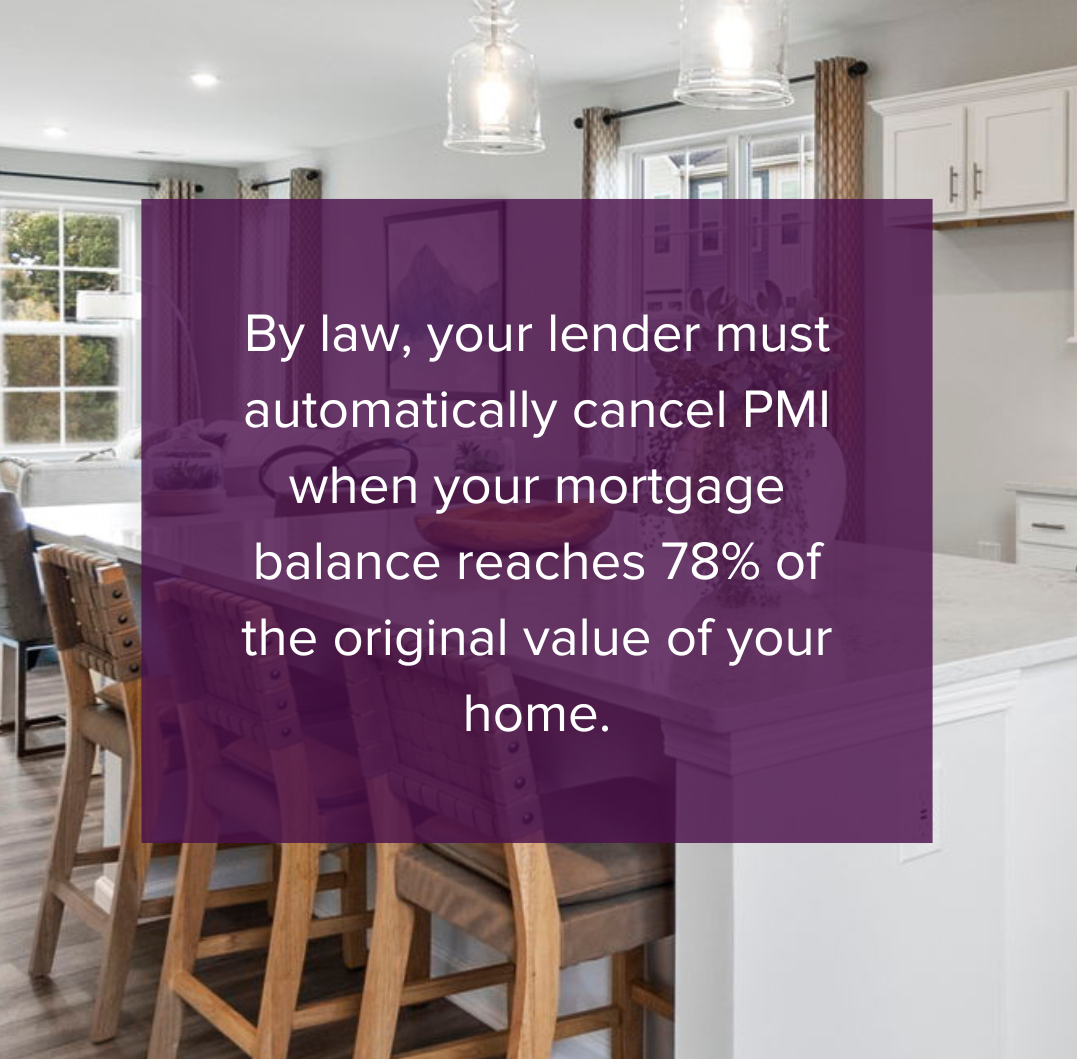As you budget for your next new home, it’s important to remember the PMI. What is PMI? PMI, or private mortgage insurance, is a type of insurance that protects lenders against loss if a borrower defaults on their mortgage.
While private mortgage insurance was first introduced in the 1930s, it wasn’t until the 1970s that it really started to become prominent, with lenders using it as a way to offer home loans to more people by allowing borrowers to get a loan with a lower down payment. In this way, you could say PMI made it easier for people to buy homes, allowing them to borrow money with a lower down payment
Eliminating the PMI payment as soon as possible is often a goal of many new homeowners because it’s money that could be spent elsewhere.
However, PMI is a fact of life for those who can’t afford to put down 20% or more on a new home and needs to be factored into the homeowner’s budget. For many, paying for PMI is the tradeoff necessary to get into a new home.
Key Points About PMI:
Purpose: PMI is required when a homebuyer makes a down payment of less than 20% of the home's purchase price. It allows buyers to purchase homes with lower down payments in exchange for a private mortgage insurance payment.
Cost: The cost of PMI varies based on factors such as the size of the down payment, the loan amount, and the borrower's credit score. It is usually included in the monthly mortgage payment, but it can also be paid upfront at closing or financed into the loan. Payment options could vary by lender.
Duration: PMI is not permanent. It can be canceled once the borrower has built up enough equity in the home, typically when the loan-to-value (LTV) ratio drops to 80%. Borrowers can request cancellation of PMI when they reach this threshold, and lenders are required to cancel it automatically when the LTV reaches 78%.
Types of PMI:
- Borrower-Paid Mortgage Insurance (BPMI): The most common type, where the borrower pays the private mortgage insurance premiums as part of their monthly mortgage payment.
- Lender-Paid Mortgage Insurance (LPMI): The lender pays the PMI premiums, but the borrower typically pays a higher interest rate on the loan as a result.
Benefits: Private mortgage insurance enables borrowers to buy homes with smaller down payments, making homeownership more accessible. However, it increases the overall cost of the loan.
Regulations: The Homeowners Protection Act of 1998 (HPA) provides guidelines for the cancellation of PMI and requires lenders to inform borrowers about their rights regarding private mortgage insurance.
Eliminating Your PMI Payment
You typically do not need to refinance your home loan to remove your private mortgage insurance payment. Here are the usual methods to get rid of PMI:

Automatic Cancellation: By law, your lender must automatically cancel PMI when your mortgage balance reaches 78% of the original value of your home. This is based on the original purchase price or the appraised value at the time of purchase, whichever is lower. This process is automatic and does not require any action from you.
Borrower-Initiated Cancellation: You can request that your lender cancel PMI once your mortgage balance reaches 80% of the original value of your home. To do this, you need to:
- Send a written request to your lender.
- Be current on your mortgage payments and have a good payment history.
- Provide evidence (such as a recent appraisal) that your home’s value has not declined.
Refinancing: Refinancing your mortgage is another option to remove PMI, especially if the value of your home has increased significantly. When you refinance, if the new loan amount is 80% or less of the home’s appraised value, you won't be required to carry private mortgage insurance on the new loan. This option may also help you secure a lower interest rate, but you should consider closing costs and other fees associated with refinancing.
For many first-time homebuyers, PMI may come as a surprise as they go through the loan process. Knowing going into the process can help buyers prepare for this, as well as plan for the future on ways to eliminate PMI as soon as possible, whether through improving the LTV ratio, refinancing, or increasing home equity.
To get the ball rolling on your own home loan or find out more about private mortgage insurance, contact the pros at our affiliate lender, Inspire Home Loans.
PMI FAQ:
How much does it cost?
The cost of PMI varies depending on the loan amount, the loan-to-value ratio, and the borrower’s credit score. Typically, it can range from 0.3% to 1.5% of the original loan amount annually.
How is it paid?
PMI can be paid in various ways, including:
- Monthly premiums added to the mortgage payment.
- A one-time upfront premium paid at closing.
- A combination of upfront and monthly payments.
Does it apply to all types of loans?
PMI is typically associated with conventional loans. Government-backed loans like FHA loans have their own mortgage insurance premiums (MIP), which work differently from private mortgage insurance.
Is it different from MIP on FHA loans?
Yes, while both are types of mortgage insurance, PMI is for conventional loans, and MIP (mortgage insurance premium) is specifically for FHA loans. MIP has different terms and requirements compared to PMI, with far fewer options for getting out of the payments early.
Can it be canceled early?
Yes, you can request PMI cancellation once your equity reaches 20%, but the lender may require a home appraisal to confirm the home’s value before canceling the insurance.
How long do I have to pay it?
PMI is typically required until you have 20% equity in your home. Once your loan balance reaches 78% of the original value of your home, the lender is required to automatically cancel private mortgage insurance, provided you are current on your payments.
Is it tax-deductible?
As of recent tax laws, PMI is tax-deductible for some homeowners, subject to income limits and other conditions. However, tax laws change, so it's essential to check current regulations or consult a tax professional.
Is there a way to avoid it without a 20% down payment?
Yes, some options include:
- Piggyback loans: A second mortgage to cover part of the down payment.
- Lender-paid PMI: The lender pays the PMI, but this usually results in a higher interest rate.
- VA Loans: For eligible veterans, PMI is not required.




